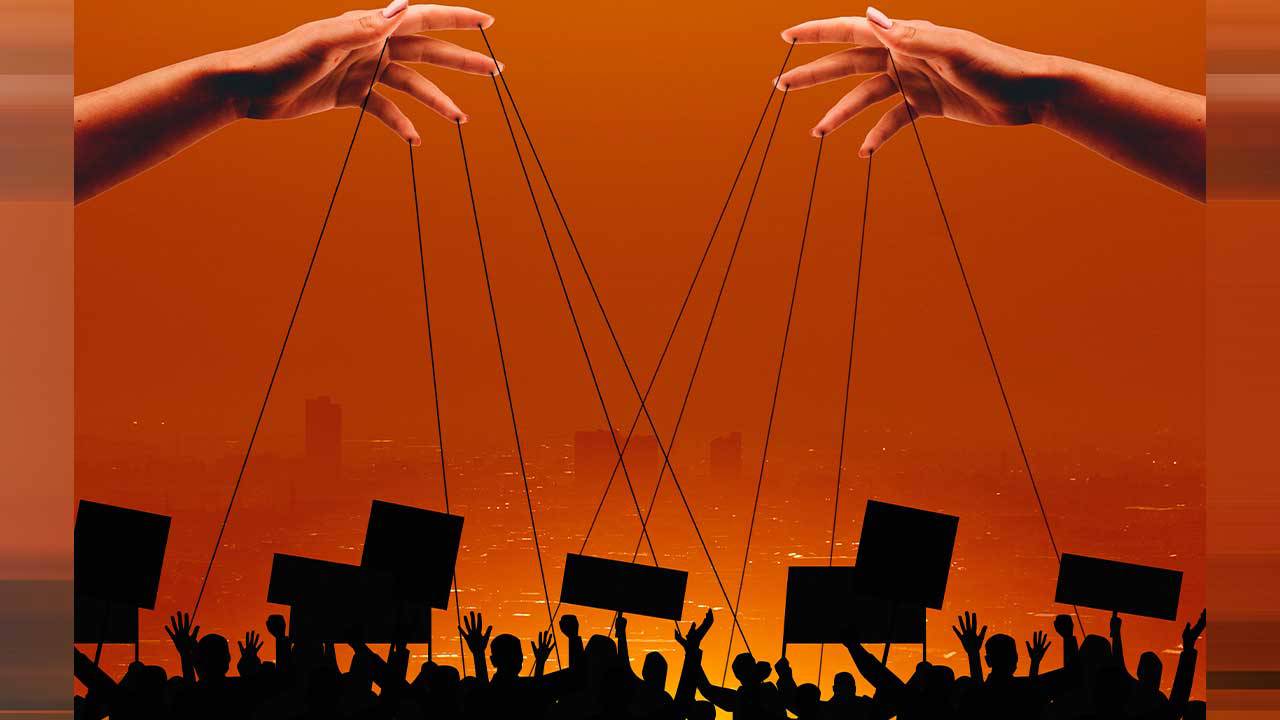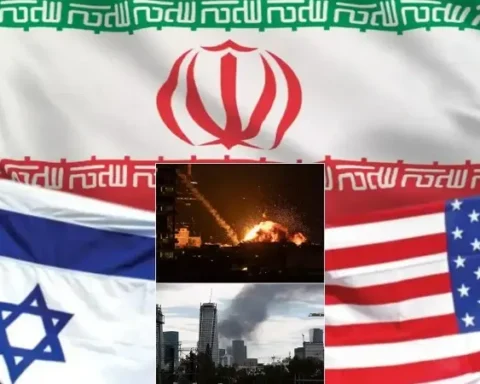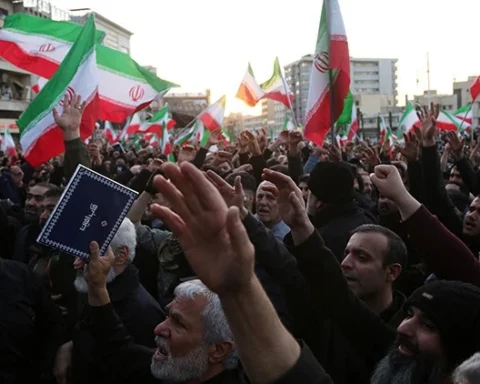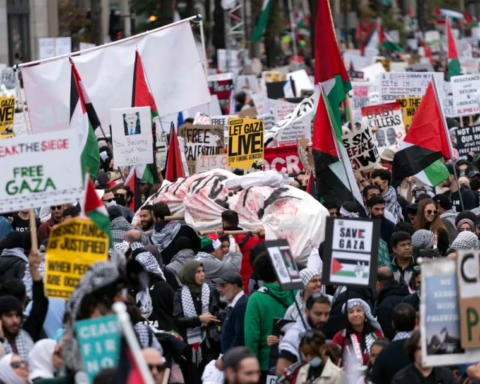Few developments have mattered so much, for so many people, as the global rise of democracy. Three hundred years ago, virtually no one lived in a democracy. As recently as the 1940s, at the darkest moments of World War II, there were perhaps a dozen scared, scattered democracies left. But by the early 21st century, democracy had become the dominant form of government.
Billions of people now lived in countries that were relatively free, humane and insulated despotic cruelty and arbitrary rule. The strength and support of a democratic superpower were indispensable to all this world-changing progress, which is one reason democracy’s global future feels so precarious right now.
The clash of ideas has always been shaped by the clash for power: From ancient times to the present, the dominant form of government has tended to follow the preferences of the era’s dominant states. During the 20th century, and especially since World War II, America helped democracy flourish globally, by aiding its growth in distant regions and holding its most lethal foes at bay. But for the last two decades, democracy’s influence has slipped as aggressive autocratic powers have surged. Now, democracy’s global fortunes are being threatened by changes in America itself.
President Donald Trump has taken a wrecking ball to America’s democracy-promotion infrastructure. Trump’s antidemocratic behavior — his nearly boundless assertions of executive authority, his threats against political opponents — have made it far from unthinkable that the US might take an illiberal turn.
The global ascent of democracy was inextricable from America’s rise as a liberal superpower. The forecast for free institutions will be dire if the US drops out of the intensifying struggle to shape the world’s political future — or, much worse, if it becomes a force for illiberalism around the globe.
Freedom Needs a Superpower
Politics and geopolitics have always been close cousins: For thousands of years, the balance between rival forms of government has reflected the balance between rival states. This isn’t at all surprising. Great powers naturally feel more comfortable in a world that looks like them politically, and the strongest states have many tools — from brutal force to subtle attraction — to mold the habits of weaker actors near and far.
In Ancient Greece, the city-states in thrall to Athens sometimes emulated its democratic practices, while those in Sparta’s sphere were more likely to replicate its oligarchic ways. More than two millenniums later, Napoleon’s romp across Europe revolutionized the continent politically as well as militarily. When Nazi Germany looked like the wave of the future, fascist movements gained momentum on several continents. During the Cold War, the surge of Soviet power enthroned communist regimes in Eastern Europe and much of the developing world.
Americans may think their own system, democracy, has thrived because it is simply superior. In reality, it has always depended on the support of mighty friends.
Democracy began its global advance in the era of British hegemony in the 19th century, when a superpower that was liberal by the standards of its time ruled the seas and sowed its political and intellectual traditions abroad. That system of government might have foundered, in a tumultuous 20th century, had Britain not been succeeded by an even mightier liberal superpower, which promoted democracy aggressively and repeatedly rescued it when it was most imperiled.
Fending Off Left and Right
Democracy had to survive before it could thrive. In both world wars, the US anchored coalitions that kept assertive autocracies from remaking the globe. During the Cold War that followed, Washington contained and eventually crushed a totalitarian Soviet Union that was ideologically committed to democracy’s demise. And in the course of that multidecade conflict, America built a free-world system that cultivated democratic values in several different ways.
One of those ways was the imitation effect. Nations, like people, tend to follow winners. The fact that the most powerful and prosperous country was a democracy made that system more attractive: Reformers could tout America’s achievements in charting their own societies’ aspirations. Yet the US wasn’t just relying on the impact of its example: It was using its unmatched power to change the political makeup of the world.
The US forcibly democratized former aggressors in Japan, West Germany and Italy after World War II, implanting liberal democracies in crucial regions. Through Marshall Plan aid, it helped fragile European democracies fend off challenges from left and right. US alliances welded democratic societies in Europe and the Western Pacific into a cohesive strategic community; Washington forged an open trading system that promoted habits of economic and political freedom.
Over time, the US fashioned a system of international norms that emphasized free elections and human rights. The very idea that political freedom is a universal value, that democracy is the standard to which societies should aspire, is a product of the American age.
Americans were never puritanical in their preference for democracy, of course. During World War II, Washington needed one totalitarian power, the Soviet Union, to defeat others. In the Cold War, Washington backed coups and worked with right-wing authoritarians to keep Moscow contained. Tell people in Guatemala or Chile that the US has always supported free institutions, and you’re likely to get a derisive snort or a wry smile.
In a messy world, survival sometimes requires cutting moral corners. But broadly speaking, US officials believed that a more democratic world would suit US interests, because free societies would share America’s stake in defending a system where human rights and political liberties were secure.
It was no coincidence that America’s deepest, longest-lasting alliances linked it to other liberal democracies, especially in Western Europe. The survival and success of liberal values here, at the heart of the free world, eventually radiated outward to the periphery — and the US became more vigorous in promoting its values as its relative power grew.
In Latin America, Washington had once checked communists by backing reactionary generals. By the 1980s, it was rebuffing coup-plotters and seeking the deeper political stability democratic transitions could provide. After the Cold War ended, the US shepherded democratic transitions in Eastern Europe, in part by extending NATO’s protective reach. It even sought to stimulate liberal institutions in Africa and, after 9/11, in the Middle East. By the early 2000s, the forces of freedom seemed triumphant. Yet within a few years, the backlash had begun.
Autocracy on the Rise
In 2005, more than 120 countries were classified as electoral democracies. According to Freedom House, a nonprofit democracy-promotion group, more countries have moved toward authoritarianism than democracy in every year since then. There has been backsliding on every continent; by the late 2010s, autocracies commanded a larger share of global GDP that democracies, when measured at purchasing power parity. The basic trend is unmistakable: For two decades, a democratic recession has been underway.
As with any complex global phenomenon, there are many causes. Some democracies born after the Cold War were weak and easily broken. America’s enthusiasm for promoting democracy waned after bloody, often counterproductive misadventures in the Middle East. In the early 2010s, a once-promising Arab Spring quickly descended into autocratic winter. Underdevelopment, rampant extremism and immature institutions left Africa vulnerable to insurgencies and coups. The story inevitably varies by region and country.
But don’t neglect the larger, overarching role of geopolitics: The recession of democracy is tied to the resurgence of the autocratic powers.
Beginning in the early 2000s, Russia clawed back from its post-Cold War debility. China exploded upon the global scene. Predictably, illiberal governments in both countries sought a world in which such regimes would be respected and secure.
Russia undermined democratic governments in neighboring countries, namely Ukraine and Georgia; it intervened to save besieged dictators from Kazakhstan and Belarus to Venezuela and Syria. China became the arsenal of autocracy, shipping the tools and techniques of repression to governments from sub-Saharan Africa to Southeast Asia. Moscow and Beijing cooperated to hound dissidents and stifle “color revolutions” in Central Asia; Chinese money and Russian mercenaries often sustain Africa’s illiberal, kleptocratic regimes. Beijing and Moscow have championed norms like internet sovereignty — the idea that illiberal governments should have total control over their cyberspace — and otherwise sought to weaken or distort the norms of a liberal world.
In February 2022, Russia and China sealed their no-limits strategic partnership, dedicated — in part — to defending their forms of government on the global stage. After Moscow assaulted Ukraine three weeks later, US President Joe Biden argued that the dictators were on the march, and that another great clash between autocracy and democracy was underway.
It looked like the world was returning to sharp ideological confrontation. But now, something far more dangerous may be happening instead.
Trump Sides With Strongmen
Donald Trump’s worldview is nothing if not eclectic: It blends calls for peace with aggressive interventionism, ruthless transactionalism with dewy-eyed nostalgia, appeals to national greatness with unabashed, individual self-seeking. What’s clear is that Trump has little interest in promoting democracy abroad or protecting it at home.
During his first term, Trump preferred to keep company with mighty autocrats rather than allied democrats; he often derided America’s political values as distractions from the rough business of world affairs. After returning to power in January 2025, Trump promptly declared war on America’s democracy-promotion enterprise.
His administration gutted the US Agency for International Development, denied funding to the National Endowment for Democracy, and slashed support for Voice of America. Those institutions, his supporters argued, were full of radical leftists and — in an echo of Russian and Chinese propaganda —destabilized the world by fomenting “color revolutions.”
The administration simultaneously deemphasized human-rights reporting and election monitoring, while eliminating US institutions and quitting international coalitions meant to fight autocratic disinformation.
Trump himself argued, in a major speech in Saudi Arabia, that democracy promotion had been a tragic error. The days of “America telling other countries how to live their lives is OVER,” Vice President J.D. Vance announced.
There are reasonable debates about how hard the US should work to promote its values amid intensifying, high-stakes geopolitical competition. Some of the administration’s moves might be seen as a bid to correct the excesses of America’s post-Cold War democratic evangelism. What makes this all more troubling, however, is that Trump and his MAGA movement often identify less with foreign democracies than with fellow strongmen.
America the Illiberal?
Trump has made the elected autocrat Nayib Bukele of El Salvador an ally in deporting migrants without due process. Trump’s closest fellow traveler in Europe is the quasi-autocratic Viktor Orban of Hungary; US officials repeatedly intervened in Germany’s elections earlier this year, by voicing support for a hard-right, illiberal party.
Many MAGA types admire Russian dictator Vladimir Putin, for his defense of “traditional values.” Trump himself has slapped tariffs on Brazil simply because its government was seeking to punish ex-president (and Trump admirer) Jair Bolsonaro for trying to topple that country’s democracy after losing his bid for reelection in 2022. Think of this as autocracy-promotion with American characteristics.
To be sure, Trump’s administration has argued that it is really defending democratic values — against the encroachments of the European thought police, an overreaching Brazilian judiciary, or progressives that are all-too-eager to censor conservative views. A less charitable interpretation is that Trump seeks illiberal allies because he has illiberal inclinations.
After eight months in office, the alarming, antidemocratic actions are legion. Trump has deployed the military in cities run by Democrats. He has wielded the law and the state as cudgels against his opponents. He has sought to extort universities and presided over outrageous instances of crony capitalism. He has tried to negate constitutional rights such as birthright citizenship, while engaging in legally dubious uses of force abroad.
As usual, Trump doesn’t even try to hide his intentions: He has said that many Americans might like a dictator, while flirting with unconstitutional restrictions on free speech and an equally unconstitutional third term.
America isn’t going to become North Korea. But Trump’s presidency has made two other scenarios all too plausible: that the US will retreat from the fight for the world’s political future; or that America could even become an illiberal superpower in the years ahead.
Ending the US-Led World
The effects of the first scenario would be bad enough. If the US pulls back from protecting and promoting democracy internationally, it would deprive embattled reformers, whether in Eastern Europe or Latin America, of solidarity and support. It would weaken international efforts to promote good governance and combat corruption. It would give Russia, China and their friends freer rein to sow disinformation within democratic societies, to reshape international norms and institutions, and thereby tilt the global playing field in favor of illiberalism.
If countries around the world realize that the way they treat their citizens has no bearing on their standing with America, then one of the strongest incentives for foreign states to embrace democratic norms will disappear. The eventual result, writes political scientist John M. Owen, could be a system that increasingly “selects for autocracy” — one that bears the imprint and reflects the prerogatives of autocratic actors, because those illiberal powers are the ones most energetically shaping the world.
That’s ugly, but then there’s the second, still-uglier possibility: The US itself becomes an illiberal actor with unrivaled global reach.
We have already seen Trump’s authoritarian tactics spread like wildfire. Since 2017, strongmen and aspiring autocrats from Southeast Asia to Latin America have imitated Trump’s efforts to sow doubt about democratic elections; they have aped his denunciations of media criticism as “fake news.” In Brazil, Bolsonaro’s followers even tried to emulate the Jan. 6, 2021, Capitol insurrection that Trump inspired. In Europe and elsewhere, illiberal populists have gained confidence, if not always electoral favor, from Trump’s example. The world’s strongest country inevitably has a powerful demonstration effect, whether for good or ill.
An illiberal America could also become a corruption superpower , aggressively engaging in the self-dealing and shady practices that entrench kleptocracy and misrule on a global scale. It would likely have weaker bonds with the democracies of Europe and the Western Pacific, leaving those countries more vulnerable to coercion and intimidation by aggressive powers. And, of course, an illiberal American leader might well seek more strongman alliances of the short Trump and Bukele have forged — and intervene on behalf of friendly autocratic movements, as the present administration has done in Brazil.
America’s tradition of liberal internationalism could become a tradition of illiberal internationalism: Trump’s policies could be a preview of how a post-democratic superpower will throw its weight around.
Those aren’t the only hints of darkness. It’s no longer outlandish to imagine an America that engages in economic coercion or territorial aggression against other democracies, that cuts spheres-of-influence deals with rival powers, or that dismantles the global trading system by engaging in rampant protectionism.
If the US goes this route — if it becomes, effectively, the strongest of the revisionist powers — then sooner or later, there won’t be a great deal left of the world order that has fostered so much freedom.
This may all seem fantastical: We’re not even a year into Trump’s second term. But with a president so volatile, so unsettling, radical outcomes can’t simply be ignored. The world’s ideological complexion changed dramatically, for the better, once democracy’s fortunes were buoyed by US power. It could change dramatically, for the worse, if America gives up on — or switches sides in — the fight.
Source: https://www.aei.org/op-eds/global-democracy-is-failing-will-the-us-save-it-or-kill-it/






